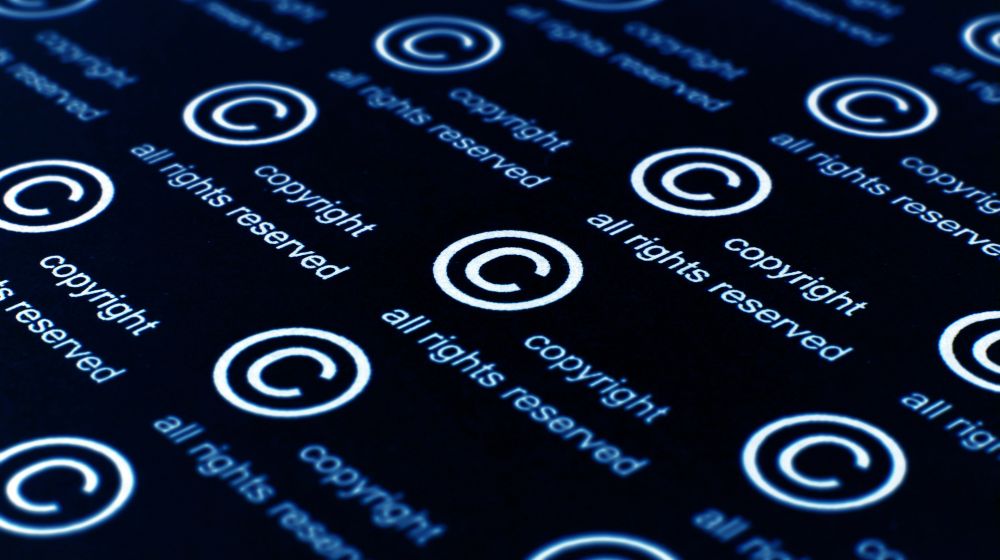Imagine being unable to log onto Facebook, Youtube or your favourite baby sloth live stream for a day. According to studies, you’d suddenly find yourself with at least 5 hours of unwanted spare time in the day. There’s no denying we all live in a world virtually powered by on-demand content. We’ve come to expect a daily influx of fresh ideas to consume, be it original music, viral videos or trending news stories. We like, we share, we feature other people’s work on our blogs and podcasts all the time.
And yet, most of us do it without ever considering the legality of it all. Like it or not, when you engage with any piece of content online, you also interact with the copyright laws. Most of the time the relationship is benign, and we happily move on with our day (yay sloths!). Still, it only takes one threat of a lawsuit to reconsider just how much you know about copyright. So let’s begin.
What is copyright?
In short, copyright is a collection of rights that protect your original work. It extends to a variety of creative forms including literary works, music, art, film, software and more. For example, I wrote a piece on copyright. I now have copyright over my article about copyright. Simple. Whoever owns copyright has exclusive permission to decide how his work is used. These rights generally include:
- the right to make copies of your work
- the right to prepare derivative works (a book gets turned into a movie)
- the right to distribute copies
- the right to perform your work
- the right to display your work in public
Bottom line, sans your permission, no one else can use what you’ve created in the ways listed above. If they do, you can sue. For a creative work to qualify for copyright protection, there are two main requirements:
It has to be original
Meaning it’s a product of your own skill and labour (physical or intellectual). Otherwise, anything could potentially be copyrighted. Even sloths.
It has to be tangible
In other words, you can’t copyright ideas. You may have just thought of the next great vampire vs. werewolf saga. But until you’ve put it on paper (please don’t), it won’t be protected by copyright.
How important is copyright?
We’re all creators. Even more often, we are fans of other people’s creations. According to Wired, the creative industries alone (film, video games, tv, music) now add £8.8m to the UK economy every hour.
It’s becoming increasingly important to effectively protect your original work and safely interact with what others have made. In a global on-demand economy, it’s easy to get lost and forget that everything online is owned by somebody. It’s on all of us to make sure copyrighted content is given the treatment it legally deserves. Only then can we get back to baby sloths in peace.
Creating a copyright notice
Unlike patents and trademarks, no action is required for your work to become copyrighted. The moment your work is expressed in a tangible form, it immediately becomes protected. Still, there are several benefits to getting a Copyright Notice. When your work has a notice, no one can claim they didn’t realise it was copyrighted. It’s hard to argue with the ©.
In case you want to sue, this makes it much easier to win a case and collect damages. Also, the notice naturally acts as a deterrent to any potential infringers. A valid Copyright Notice contains several key features:
- the word “copyright”
- a “c” in a circle (©)
- date of publication
- name of the author or the owner of all the copyright rights
For example, the Copyright Notice for your upcoming Twilight-esque trilogy would be Copyright © 2015 ™ John Doe. Just in case.
Exceptions to copyright
No creative work is absolutely protected. Most copyright laws aim to strike a balance between two very opposite interests. On the one hand, they allow creators to control how their work is used and get paid for it. On the other, they want to make sure society benefits from new ideas.
To that end, there are limited cases in which using other’s work without their permission is allowed. Naturally, these differ by country.
Personal research and study
Students can copy limited extracts of copyrighted works for non-commercial research. Same exceptions often apply to teachers as well.
Fair use
In short, ‘Fair Use’ refers to using snippets of copyrighted works for a limited and ‘transformative’ purpose. Commenting on, criticising, reviewing or parodying a copyrighted piece would all fall under the ‘Fair Use’ provision. There are hundreds of books and legal precedents dealing with the question of Fair Use. Needless to say, proceeding with extra caution is advised.
